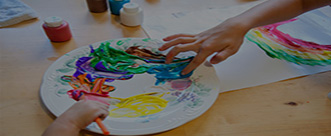More than 7 million children, youth and young adults, ages birth through twenty-one, have disabilities and receive special education services. Approximately 2/3 of special education students are male. Learning disability includes:
Learning Disabilities
-
Speech or language impairment
-
Intellectual disability
-
Emotional behavioral disability
Dyslexia
Kids with dyslexia have trouble reading accurately and fluently. They may also have trouble with reading comprehension, spelling and writing.
Dyslexia can create difficulty with other skills, however. Dyslexia is a lifelong condition that makes it difficult for people to read. It’s the most common learning issue, although it’s not clear what percentage of kids have it. Some experts believe the number is between 5 and 10 percent. Others say as many as 17 percent of people show signs of reading issues. The reason for the wide range is that experts may define dyslexia in different ways.
Dyslexia is mainly a problem with reading accurately and fluently. Kids with dyslexia may have trouble answering questions about something they’ve read. But when it’s read to them, they may have no difficulty at all.
Dyslexia can create difficulty with other skills, however. These include:
- Reading comprehension
- Spelling
- Writing
- Math
Learning disability in reading
Kids with dyslexia have trouble reading accurately and fluently.
Dysgraphia
The term Dysgraphia comes from the Greek words dys (“impaired”) and graphia (“making letter forms by hand”).
For many children with dysgraphia, just holding a pencil and organizing letters on a line is difficult. Their handwriting tends to be messy. Many struggle with spelling and putting thoughts on paper. These and other writing tasks—like putting ideas into language that is organized, stored and then retrieved from memory—may all add to struggles with written expression.
Different professionals may use different terms to describe your child’s struggle with written expression.
Trouble with written expression
Dysgraphia is a brain-based issue and is not the result of a child being lazy.
Dyscalculia
Kids with dyscalculia may have difficulty understanding number-related concepts or using symbols or functions needed for success in mathematics. It’s not as well known or understood as dyslexia. But some experts believe it’s just as common.
Kids with dyscalculia also have trouble with the mechanics of doing math, such as being able to recall math facts. They may understand the logic behind math, but not how or when to apply what they know to solve math problems. They also often struggle with working memory. For example, they may have a hard time holding numbers in mind while doing math problems with multiple steps.
Dyscalculia goes by many names. Some schools refer to it as a mathematics learning disability. Doctors sometimes call it a mathematics disorder. You may even hear kids and parents call it math dyslexia. The term math dyslexia can be misleading, though. Dyscalculia and dyslexia is not the same thing.
Specific learning disability in math
A lifelong condition that makes it hard for kids to perform math-related tasks.

We Can Help
Our team of experts includes behavior specialists, speech pathologists, occupational therapists and skill development coordinators. All our therapists and tutors works in collaboration to help children reach their maximum potential.
Contact Us

